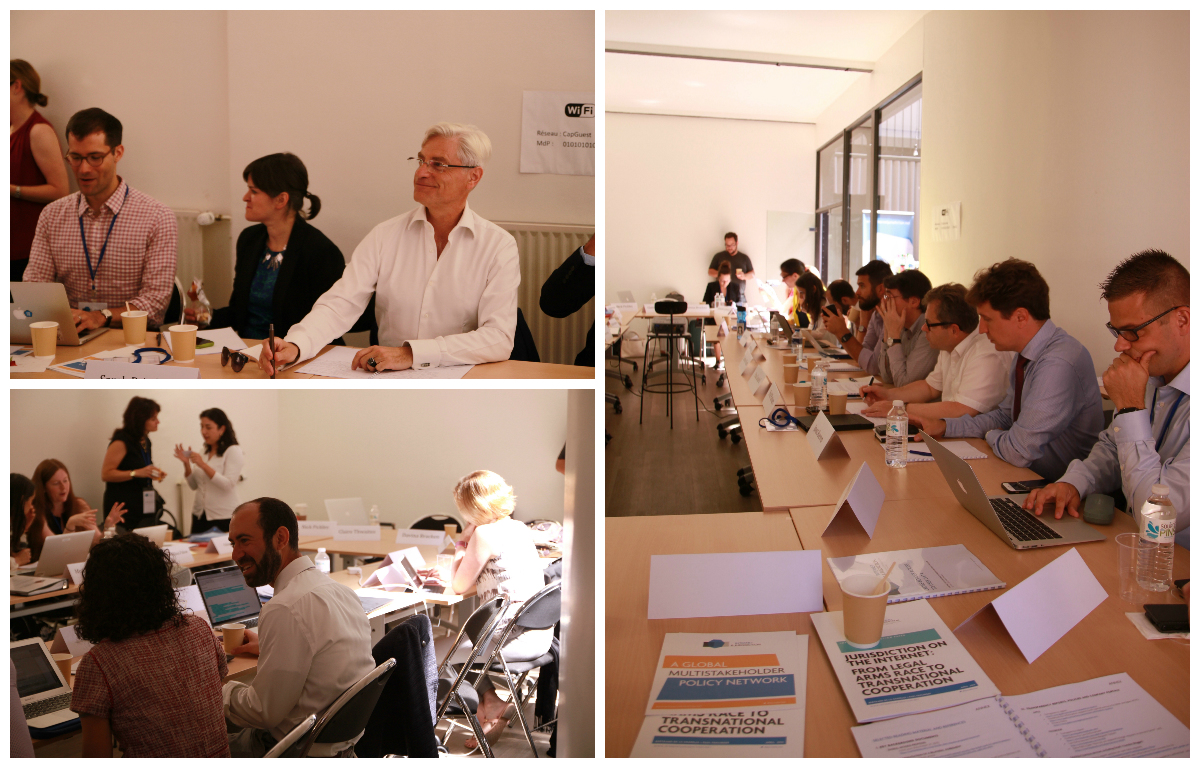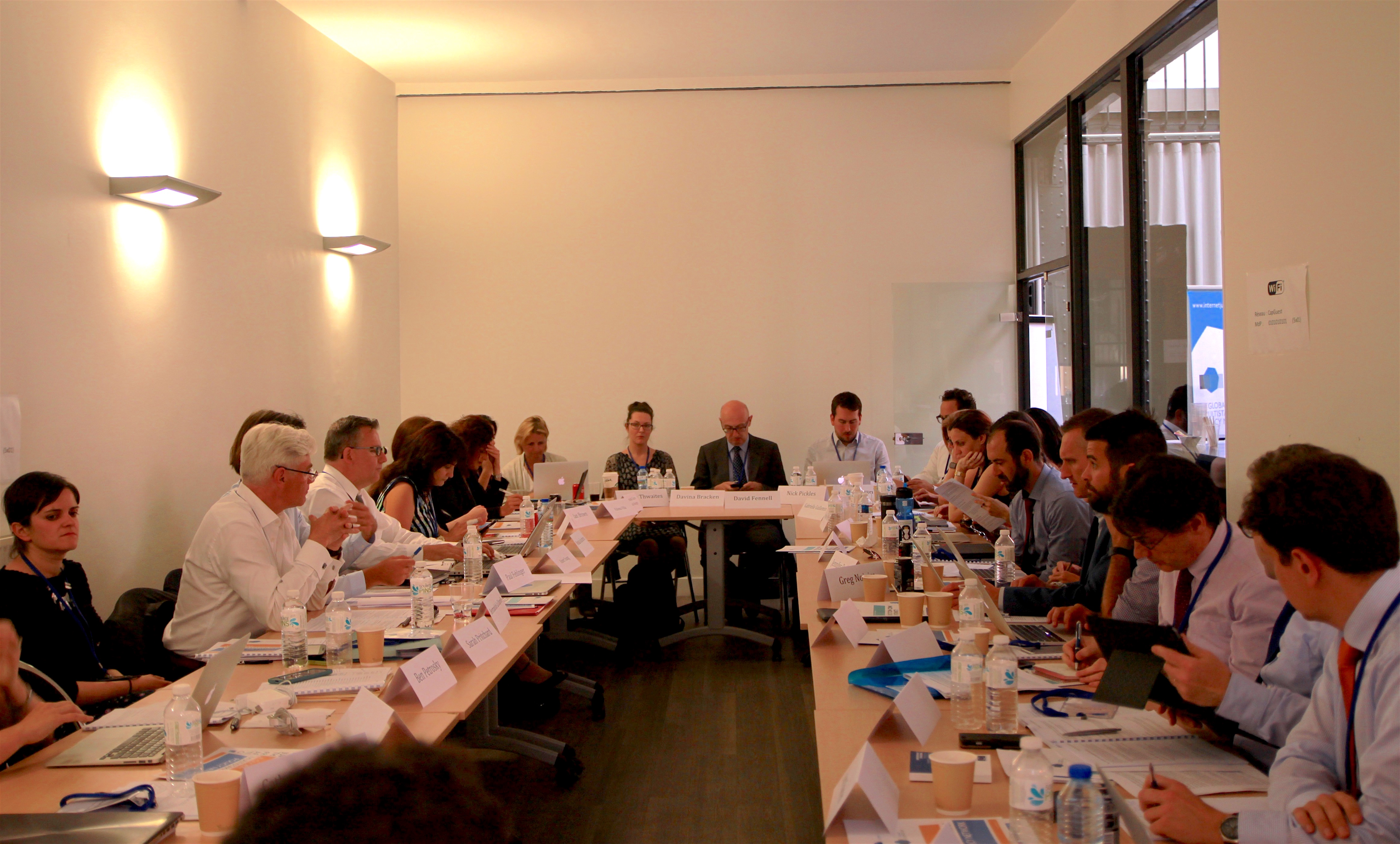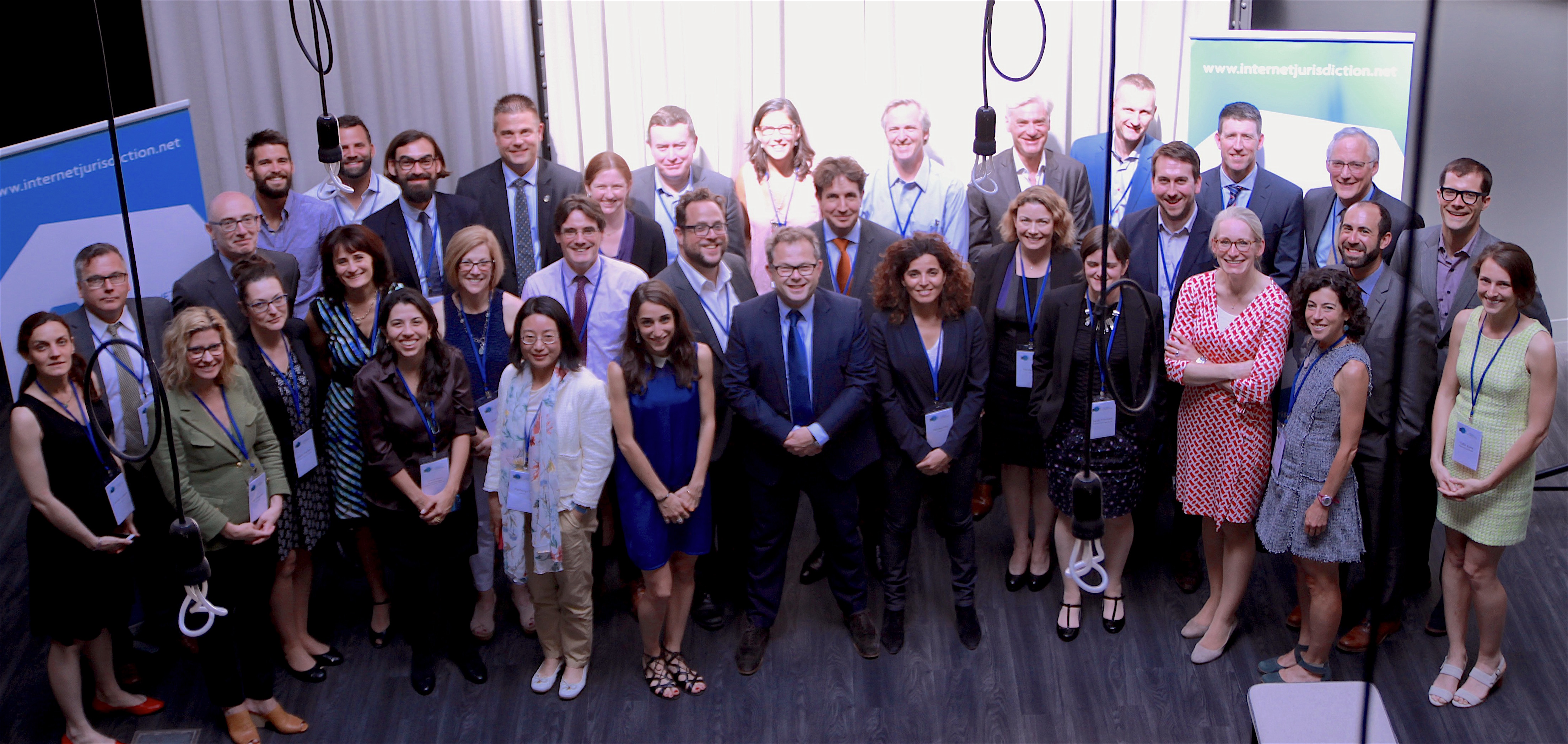6
Jul 2016
I&J Meeting on Cross-border Access to User Data
I&J convened
July 8, 2016
Cross-border Access to User Data
On July 6-7, 2016, Internet & Jurisdiction convened a meeting of its global policy network in Paris, France on the topic of cross-border access to user data. This event was part of the preparatory process for the Global Internet and Jurisdiction Conference, to be convened in November 2016, and Workstream I on Data & Jurisdiction in particular.
We’re not dealing with yesterday’s world. The mechanisms that we have developed won’t last if they’re not forward-looking.
All stakeholder groups feel the increasing tensions around cross-border data issues and the existing tools of international cooperation are not adapted to 21st century realities. New approaches are needed to not only ensure that human rights are protected while allowing law enforcement and other competent authorities cross-border access to user data necessary for investigations, but also to reduce the conflicts of jurisdictions that companies are increasingly confronted with when dealing with such requests.
The current legal framework is inadequate and the status quo is not sustainable. Companies that want to be responsible risk being put into jeopardy criminally in one country for complying with the laws of another.

Lively discussions, engagement, and concentration during the Data & Jurisdiction meeting of the I&J Policy Network.
Concerns were expressed during the meeting that the inefficiency of existing systems such as MLATs produces negative incentives for governments to impose data localization or exercise their sovereignty extra-territorially. There is now a broad understanding among stakeholders that innovative transnational mechanisms and policy standards are needed to address cross-border challenges regarding access to user data.
Submission and Handling of Requests
This event brought together 35 participants to discuss current efforts to deal with requests for respectively: basic subscriber information, traffic and content data. Topics discussed included: MLATs and voluntary cooperation; proposed approaches such as the so-called “Daskal-Woods proposal” in the United States and the perspective of a US-UK Bilateral Agreement; initiatives by the European Union and the Council of Europe; and national perspectives from Brazil and Canada.
Internet & Jurisdiction presented a possible architecture to guide discussions around the submission and handling of requests, in order to facilitate the development of policy standards that would establish transnational due process.

Stakeholders from around the world gather to discuss cross-border access to user data.
The participants stressed that beyond identifying problems, efforts must be made to find holistic and practical solutions that are compatible when applied on the larger scale.
Sovereignty is important for States, and some perceive the Internet as a threat to it. We need to craft solutions that can scale.

Multistakeholder Participation
The Data & Jurisdiction meeting brought together a diverse group of relevant stakeholders to present their perspectives and interests in the policy area, exchange knowledge, and identify initiatives in order to reduce duplication, facilitate cooperation between actors and catalyze the development of policy standards and operational solutions.
We need to move beyond mere dialogue towards concrete proposals and a way forward: this is an everyday problem for law enforcement and companies.
Cross-border Access to User Data
On July 6-7, 2016, Internet & Jurisdiction convened a meeting of its global policy network in Paris, France on the topic of cross-border access to user data. This event was part of the preparatory process for the Global Internet and Jurisdiction Conference, to be convened in November 2016, and Workstream I on Data & Jurisdiction in particular.
We’re not dealing with yesterday’s world. The mechanisms that we have developed won’t last if they’re not forward-looking.
All stakeholder groups feel the increasing tensions around cross-border data issues and the existing tools of international cooperation are not adapted to 21st century realities. New approaches are needed to not only ensure that human rights are protected while allowing law enforcement and other competent authorities cross-border access to user data necessary for investigations, but also to reduce the conflicts of jurisdictions that companies are increasingly confronted with when dealing with such requests.
The current legal framework is inadequate and the status quo is not sustainable. Companies that want to be responsible risk being put into jeopardy criminally in one country for complying with the laws of another.

Lively discussions, engagement, and concentration during the Data & Jurisdiction meeting of the I&J Policy Network.
Concerns were expressed during the meeting that the inefficiency of existing systems such as MLATs produces negative incentives for governments to impose data localization or exercise their sovereignty extra-territorially. There is now a broad understanding among stakeholders that innovative transnational mechanisms and policy standards are needed to address cross-border challenges regarding access to user data.
Submission and Handling of Requests
This event brought together 35 participants to discuss current efforts to deal with requests for respectively: basic subscriber information, traffic and content data. Topics discussed included: MLATs and voluntary cooperation; proposed approaches such as the so-called “Daskal-Woods proposal” in the United States and the perspective of a US-UK Bilateral Agreement; initiatives by the European Union and the Council of Europe; and national perspectives from Brazil and Canada.
Internet & Jurisdiction presented a possible architecture to guide discussions around the submission and handling of requests, in order to facilitate the development of policy standards that would establish transnational due process.

Stakeholders from around the world gather to discuss cross-border access to user data.
The participants stressed that beyond identifying problems, efforts must be made to find holistic and practical solutions that are compatible when applied on the larger scale.
Sovereignty is important for States, and some perceive the Internet as a threat to it. We need to craft solutions that can scale.

Multistakeholder Participation
The Data & Jurisdiction meeting brought together a diverse group of relevant stakeholders to present their perspectives and interests in the policy area, exchange knowledge, and identify initiatives in order to reduce duplication, facilitate cooperation between actors and catalyze the development of policy standards and operational solutions.



